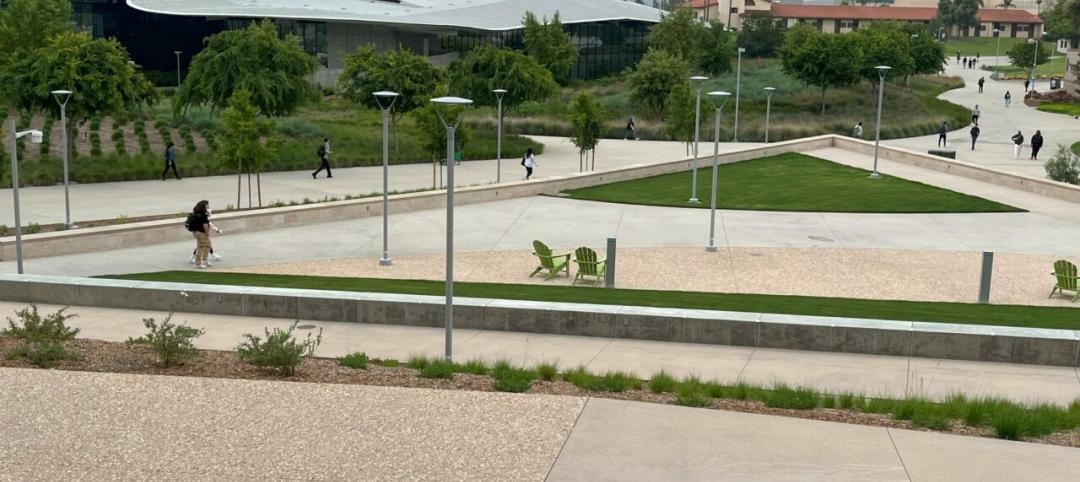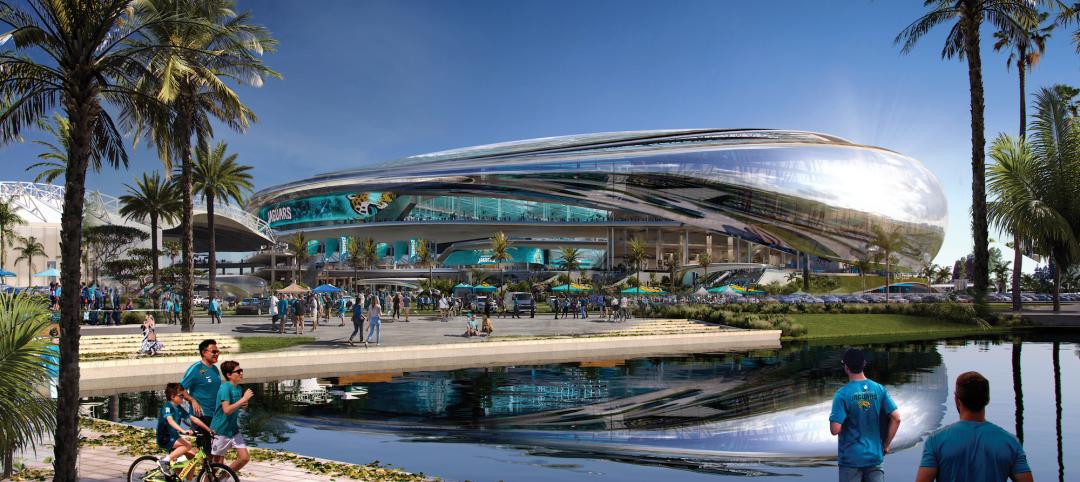WASHINGTON, D.C.--(ENEWSPF)--November 30, 2010. During a live online chat at the White House earlier today, U.S. Energy Secretary Steven Chu announced that 24 projects are receiving a total of $21 million in technical assistance to dramatically reduce the energy used in their commercial buildings. This initiative, supported with funding from the American Recovery and Reinvestment Act, will connect commercial building owners and operators with multidisciplinary teams including researchers at DOE's National Laboratories and private sector building experts. The teams will design, construct, measure, and test low-energy building plans, and will help accelerate the deployment of cost-effective energy-saving measures in commercial buildings across the United States.
"These Recovery Act projects are bringing together experts from our National Laboratories and the private sector to help businesses and organizations reduce the energy they use in their facilities, saving them money on their energy bills and making them more competitive economically," said Secretary Chu. "This initiative will also demonstrate to other commercial building operators that cost-effective, energy-efficient technologies exist today that will help lower the operating and energy costs of their buildings."
Through DOE's Commercial Building Partnerships, teams comprised of private sector technical experts and personnel from National Laboratories will help guide projects to achieve 30 percent measured energy savings in existing buildings and 50 percent energy savings in new construction projects. About half of the two dozen projects focus on energy efficiency upgrades for existing buildings. The three-year projects will provide comprehensive business and technical case studies for broad publication, including actual energy performance data from the completed projects, to help spur wider adoption of energy-efficient building practices across the industry.
The projects are funded with a public/private cost-sharing agreement, where the building owners and operators contribute at least 20 percent. Building owners and operators do not receive direct funding through the project, but instead get access to state-of-the-art technical guidance to implement energy efficiency technologies throughout the design, construction, and evaluation phases of their building and retrofit projects. This technical expertise includes energy modeling and energy performance verification by laboratory researchers and private sector experts.
The selected building owners and operators benefit by learning about measures they can apply across their extensive building portfolios. The use of private sector consultants and National Laboratory experts helps ensure that the energy efficiency measures and lessons learned in the projects will be quickly adopted by the marketplace.
Three DOE National Laboratories-Lawrence Berkeley National Laboratory (LBNL), the National Renewable Energy Laboratory (NREL), and the Pacific Northwest National Laboratory (PNNL)-will manage the effort and provide technical assistance for the selected projects. The aggressive energy efficiency design goals for each project include reasonable returns on investment and must meet other business criteria established in collaboration with the partners.
Each project will receive technical assistance valued at between $200,000 and $1.2 million, depending on the scope and nature of the plan. The following is a list of the selected projects:
* Cascadia Center for Sustainable Design and Construction; The Bullitt Foundation; Seattle, Washington
* Center for Alternative, Renewable Energy, Technology and Training; Clark Atlanta University; Atlanta, Georgia
* The College of Architecture + Planning at the University of Utah; Salt Lake City, Utah
* The Defense Commissary Agency; Lackland Air Force Base; San Antonio, Texas
* Grand Valley State University; Allendale, Michigan
* Hines; Somerset, New Jersey
* The Home Depot; Rocklin, California
* Living City Block; Denver, Colorado
* The LOOP at the University of California; Mesa Lane Partners; Santa Barbara, California
* Long Beach Gas and Oil; Long Beach, California
* Massachusetts Institute of Technology; Cambridge, Massachusetts
* Oregon Built Environment & Sustainable Technologies Center; Portland, Oregon
* Shy Brothers Farm; Westport, Massachusetts
* Sierra Nevada Job Corps; Reno, Nevada
* Smart Grid Development; North Kingstown, Rhode Island
* Twentieth Century Fox Film Corporation; Los Angeles, California
* University of California Merced; Merced, California
* University of South Carolina; Columbia, South Carolina
* U.S. Army; Fort Bragg, North Carolina
* U.S. General Services Administration; Portsmouth, New Hampshire
* U.S. General Services Administration; Region 9 locations
* U.S. General Services Administration; San Francisco
* Walmart; two locations to be determined
During the selection process, each building owner or operator submitted plans for designing a new building or upgrading existing buildings and committed to working with National Laboratories and technical experts. Project selection criteria included the likelihood of achieving significant energy savings, the probability of success, widespread deployment potential, contribution to a diverse DOE portfolio of energy-saving solutions, and the organizations' commitment to improving energy efficiency.
Learn more about Commercial Building Partnerships and other projects that are part of DOE's Building Technologies Program.
Related Stories
Multifamily Housing | Jun 28, 2023
Sutton Tower, an 80-story multifamily development, completes construction in Manhattan’s Midtown East
In Manhattan’s Midtown East, the construction of Sutton Tower, an 80-story residential building, has been completed. Located in the Sutton Place neighborhood, the tower offers 120 for-sale residences, with the first move-ins scheduled for this summer. The project was designed by Thomas Juul-Hansen and developed by Gamma Real Estate and JVP Management. Lendlease, the general contractor, started construction in 2018.
Architects | Jun 27, 2023
Why architects need to think like developers, with JZA Architecture's Jeff Zbikowski
Jeff Zbikowski, Principal and Founder of Los Angeles-based JZA Architecture, discusses the benefits of having a developer’s mindset when working with clients, and why architecture firms lose out when they don’t have a thorough understanding of real estate regulations and challenges.
Apartments | Jun 27, 2023
Average U.S. apartment rent reached all-time high in May, at $1,716
Multifamily rents continued to increase through the first half of 2023, despite challenges for the sector and continuing economic uncertainty. But job growth has remained robust and new households keep forming, creating apartment demand and ongoing rent growth. The average U.S. apartment rent reached an all-time high of $1,716 in May.
Apartments | Jun 27, 2023
Dallas high-rise multifamily tower is first in state to receive WELL Gold certification
HALL Arts Residences, 28-story luxury residential high-rise in the Dallas Arts District, recently became the first high-rise multifamily tower in Texas to receive WELL Gold Certification, a designation issued by the International WELL Building Institute. The HKS-designed condominium tower was designed with numerous wellness details.
University Buildings | Jun 26, 2023
Addition by subtraction: The value of open space on higher education campuses
Creating a meaningful academic and student life experience on university and college campuses does not always mean adding a new building. A new or resurrected campus quad, recreational fields, gardens, and other greenspaces can tie a campus together, writes Sean Rosebrugh, AIA, LEED AP, HMC Architects' Higher Education Practice Leader.
Standards | Jun 26, 2023
New Wi-Fi standard boosts indoor navigation, tracking accuracy in buildings
The recently released Wi-Fi standard, IEEE 802.11az enables more refined and accurate indoor location capabilities. As technology manufacturers incorporate the new standard in various devices, it will enable buildings, including malls, arenas, and stadiums, to provide new wayfinding and tracking features.
Green | Jun 26, 2023
Federal government will spend $30 million on novel green building technologies
The U.S. General Services Administration (GSA), and the U.S. Department of Energy (DOE) will invest $30 million from the Inflation Reduction Act to increase the sustainability of federal buildings by testing novel technologies. The vehicle for that effort, the Green Proving Ground (GPG) program, will invest in American-made technologies to help increase federal electric vehicle supply equipment, protect air quality, reduce climate pollution, and enhance building performance.
Office Buildings | Jun 26, 2023
Electric vehicle chargers are top priority for corporate office renters
Businesses that rent office space view electric vehicle (EV) charging stations as a top priority. More than 40% of companies in the Americas and EMEA (Europe, the Middle East and Africa) are looking to include EV charging stations in future leases, according to JLL’s 2023 Responsible Real Estate study.
Laboratories | Jun 23, 2023
A New Jersey development represents the state’s largest-ever investment in life sciences and medical education
In New Brunswick, N.J., a life sciences development that’s now underway aims to bring together academics and researchers to work, learn, and experiment under one roof. HELIX Health + Life Science Exchange is an innovation district under development on a four-acre downtown site. At $731 million, HELIX, which will be built in three phases, represents New Jersey’s largest-ever investment in life sciences and medical education, according to a press statement.
Sports and Recreational Facilities | Jun 22, 2023
NFL's Jacksonville Jaguars release conceptual designs for ‘stadium of the future’
Designed by HOK, the Stadium of the Future intends to meet the evolving needs of all stadium stakeholders—which include the Jaguars, the annual Florida-Georgia college football game, the TaxSlayer.com Gator Bowl, international sporting events, music festivals and tours, and the thousands of fans and guests who attend each event.
















